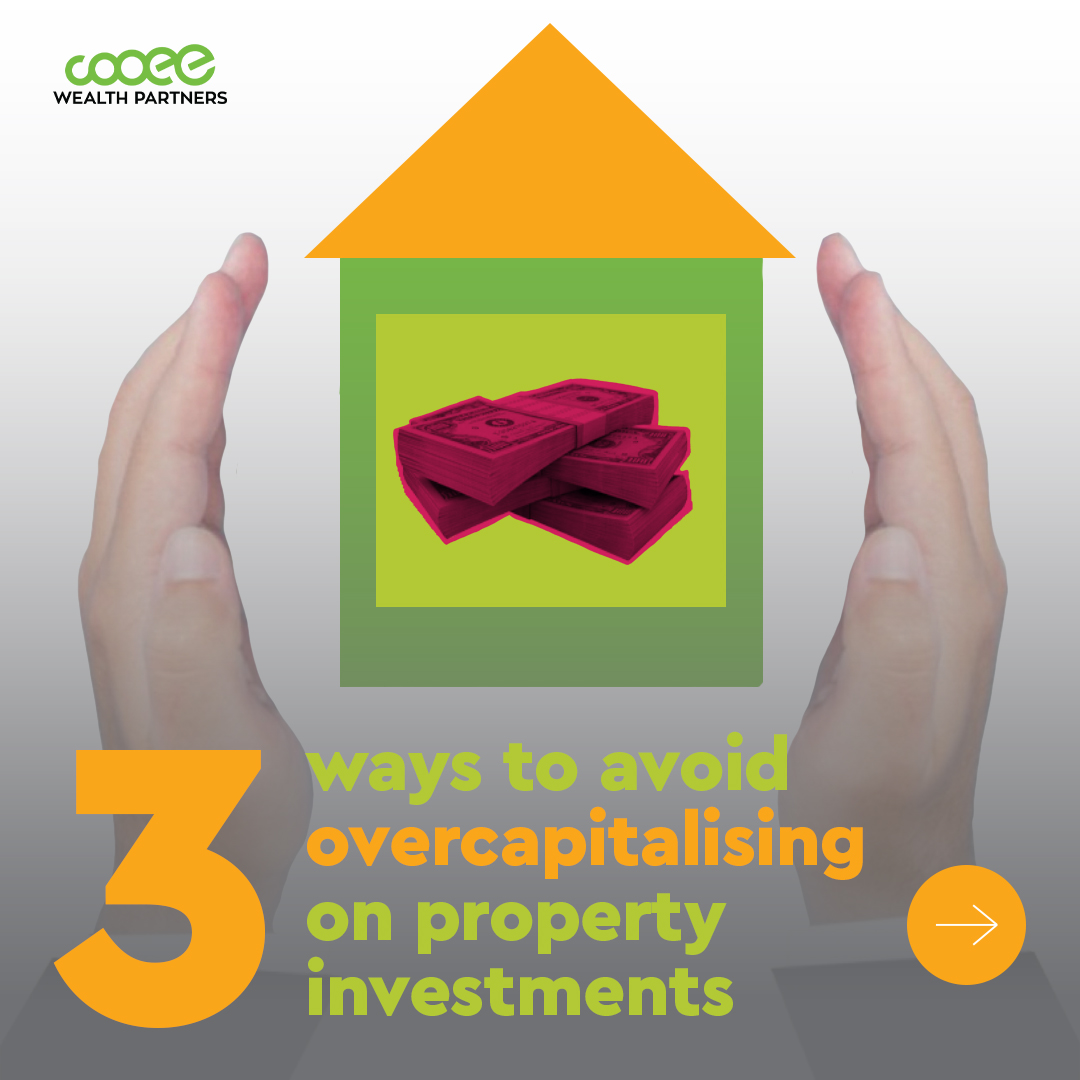
TV shows can make property renovations look glamorous and effortless. But as a property investor, you need to realise that spending money on a property doesn’t always result in an increase in value.
When it comes to renovations, you need to be selective and discerning with home improvements, or else you might go overboard without even realising it.
This is a prevalent issue today. Aussie homeowners were at risk of overcapitalising on renovations as property prices peaked and plateaued during the pandemic for several reasons. People who normally went on holidays and vacations spent their disposable income on upgrading their homes instead (even when it wasn’t necessary).
The work-from-home era also brought the spotlight on apartments and houses as the centres of work and personal lives, becoming spaces to sleep, eat, work and play.
This was a driving factor for the renovating frenzy, and it resulted in a high risk of overcapitalising, which is when renovation costs more than it makes back in added value.
Homeowners were making significant changes to their property in the hopes that it would appeal to buyers and investors when in reality, there was no guarantee that it would address any pressing need to their target market.
While we’re no longer in a pandemic, overcapitalising can still be a problem for property investors who can become overzealous about renovating. This blog gives an overview of how real estate depreciates and ways you can prevent overcapitalising on your property investments.

Remember how appreciation in real estate works
Keep in mind that land is the appreciating asset whilst the dwelling itself depreciates.
So, how does this involve overcapitalising property investments?
The dwellings are just there to capture rent while you wait for the value of land to go up. The land appreciates as market demand goes up, particularly if there is an increase in the desirability of the location, employment opportunities and new amenities. The dwelling, or building, naturally depreciates as the structure gains wear and tear over time.
So, adding renovations and improvements to the structure that is technically decreasing in value over time will not guarantee that you are going to get long-term capital growth either.
Renters don’t necessarily care if a bathroom has floor-to-ceiling tiles, and they won’t pay another $40 worth of rent for this property just for something like that. You might spend tons of resources (time, money, energy) on minor renovations, only for those renovations to be overhauled completely by the new owners who buy your property.
You would also need to consider the lost rental income whilst you have a vacant property that’s undergoing renovations. For example, if you have a vacant property for six weeks, that otherwise would have earned $700 per week of rent ($4,200 over six weeks), spending approximately $20,000 on minor works — only to achieve a $50 per week increase in rental income. At this rate, it will take more than nine years to recoup those costs.
We’re not saying you should never do renovations. However, it’s important to be mindful of the costs and lost time that go into these renovations and make sure that you stick to a budget.
3 ways to avoid overcapitalising on property investments

It can be very easy to overcapitalise on property investments without intending to do so. The best way to avoid this pitfall is by following actionable plans and sticking to your investment strategy. We’ve shortlisted three key ways you can prevent overcapitalising on your property investments.
- Supply and demand – In theory, the demand for housing should exceed the supply, but there are other factors you need to consider when forecasting future demand. Look at the population growth, the demographics and the number of building projects approved and in progress in that area. This will inform how future demand will be impacted.
- Economic factors – Review the current employment growth, average property prices and disposable income in assessing future economic trends. Higher employment growth and disposable income indicate that people have more money to spend and that they’re confident in doing so.
- Market cycle – Check city areas that were once run down and see if they are (or will be) undergoing gentrification. This can transform suburbs into up-and-coming neighbourhoods with better amenities that attract more residents.
1. Develop a strategy and stick to it
This is the first step you should take when you start investing in property. Your strategy can help you identify what kind of enhancements can add value to your property while making sure that you stay on track and that you don’t blow your budget.
Having a strategy or a financial plan is helpful to property investors of any age, especially as your goals evolve and change over time. Your financial plan acts as a map so that you can navigate your investment journey through the inevitable ups and downs.
Financial planning is more than just budgeting (though that is also an important part of it), it acts as a tool for striking the right balance between your current needs and future dreams. And it’s a good safeguard against potentially overcapitalising on your property investments.
2. Treat investments as transactions (not emotional purchases)
Before you start on those home improvements, ask yourself: Are the renovations for the benefit of potential renters, or you?
It’s easy to visualise your newly renovated property and fall in love with that vision. But following this kind of thinking can lead to emotional purchases that ultimately lead you astray from your original strategy.
As an investor, you must have good financial habits that help you keep your cool and make logical financial decisions. A financial adviser can coach you in developing good habits as well as necessary qualities, such as patience, determination and awareness of your personal biases.
3. Research the area of your property investment
We also see a lot of investors with property purchases that have relatively new houses but are located in areas where the land price is low.
This means the purchase price is mostly attributed to the building value rather than the land. It’s important to remember that land is the appreciating asset while the building depreciates, so you want more exposure to the underlying land price growth.
There are certain things you need to look for when it comes to researching the property market:
A financial adviser can help you conduct your research and generate insight from the data you gather. This can help you identify if it’s necessary to renovate your property and if so, what kind of enhancements will add value to your home.
Once you overcapitalise on a property investment, there’s no turning back. So make sure you stick to your financial strategy and consult with your adviser before making any renovations on your property.
Book a call with one of our Wealth Partners, we’ll make sure you stay on track with your property investment goals.





